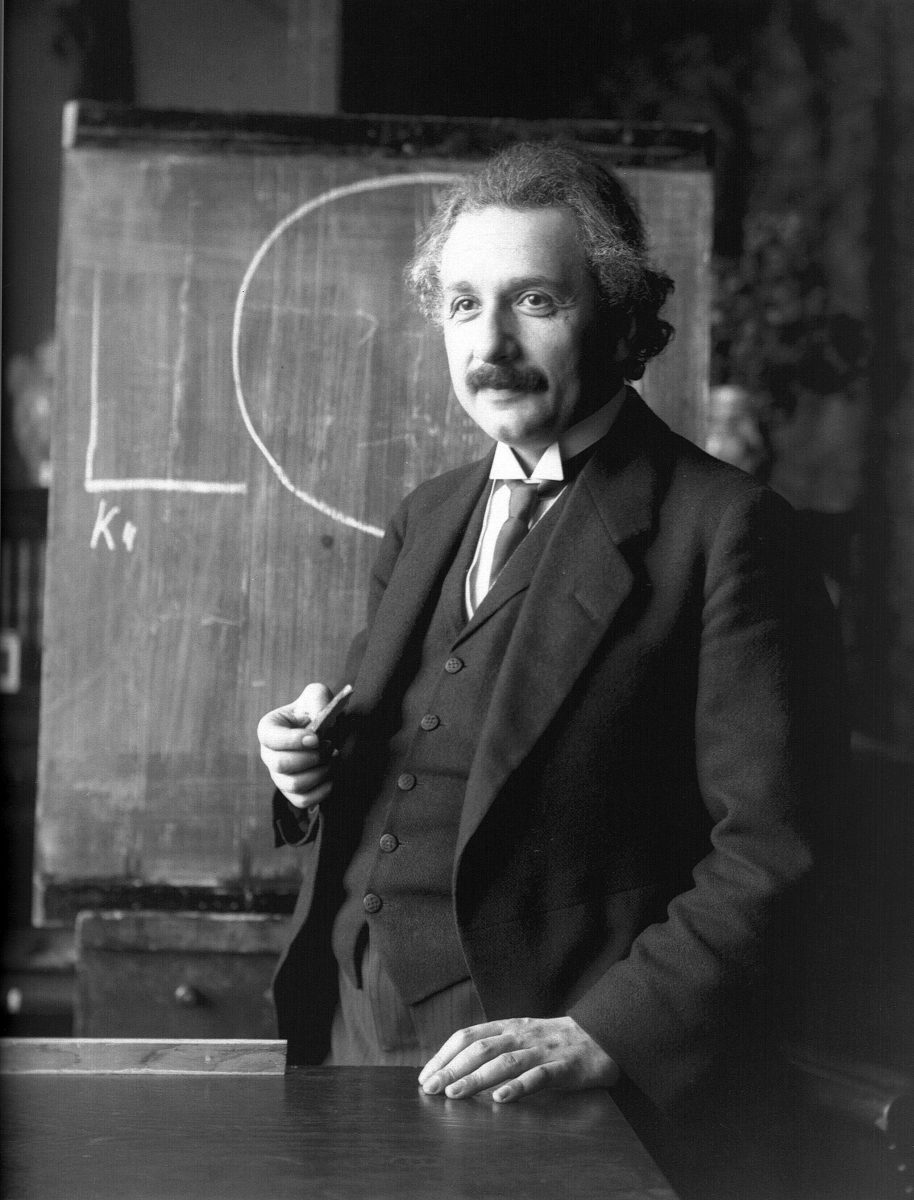By Patrick Dobyns, Opinion Editor
The year is 1933. Armed officers in black, wearing stolen symbols of peace on their arms, raid an apartment in Berlin. The Enabling Act has just granted Chancellor Hitler emergency powers to counter anti-German activities, and his secret police are on a witch hunt. Their targets are communists, radicals, jews, and more. The apartment they have just raided, however, is empty; their former occupants are on tour in America. Albert Einstein knows he can never return to Germany.

Albert Einstein, recognized now as one of the most brilliant minds of the twentieth century, was not the only scientist to flee Nazi persecution. A huge number of professionals fled Germany, many eventually settling and supporting the allied nations of Britain, Canada, and the United States. This is a phenomenon known as “Human Capital Flight”, more frequently called “Brain Drain,” and is defined as a departure of educated professionals from a country, area, or profession.
The earliest recorded example we have of this phenomenon is as early as 529 AD, when Eastern Roman Emperor Justinian closed the Neoplatonist Academies, educational facilities that were often strongholds of Hellenic polytheism. The pagan members were persecuted under the Christian law, and fled East to Persia. While the effects this had on the Eastern Roman Empire aren’t well recorded, it has been suggested that the traditions of the Neoplatonists helped to inspire the Islamic Golden Age in Baghdad during the Middle Ages, inspiring new innovations in mathematics, philosophy, and many of the sciences.
In 1598, the Huguenots were a group of French Protestants, specifically Calvinists, who had been guaranteed religious freedom by the Treaty of Nantes. In 1685, however, the Treaty was revoked by King Louis XIV and replaced with the Treaty of Fontainebleau. The new treaty made Protestantism illegal, forced Catholic education, and outlawed their emigration. Hundreds of thousands of Huguenots fled anyway, moving to countries such as Holland, Prussia, Britain, and their colonies in South Africa and America. Many of the exiles were skilled craftspeople, doctors, and business leaders. The new treaty proved to be a detriment to France, with those who stayed rebelling against the oppressive regime and those who left helping their rivals in Prussia and Britain to populate the countryside with skilled individuals.
As we reach the twentieth century, we see some of the largest scale persecutions the world has ever known, and the greatest effects of Brain Drain. The rise of fascism in Germany led to persecution of any who the reigning party could blame for the country’s defeat in the First World War. The Jewish population bore the brunt of this persecution, although there were many minority groups that suffered as well. Antisemitism led scientists such as Albert Einstein, Sigmund Freud, and Enrico Fermi to immigrate to Britain and the United States.
The Jewish people and other minorities of the time were not the only target of the Nazis, however. Any left-leaning institution was subject to crackdowns, many of which were educational in nature. After targeting the University of Göttingen in 1933, many talented academics were forced to leave. In a rumored discussion between the Mathematician David Hilbert and Nazi Minister of Education Bernhard Rust, Rust asked “How is mathematics at Göttingen, now that it is free from the Jewish influence?” Hilbert replied, “There is no mathematics in Göttingen anymore.”
Many other schools and universities saw similar crackdowns, shutdowns, and purges, with people of all professions fleeing to Britain and the United States. Some estimates range as high as 20% of their teaching staff, with over 60% of all fired scientists moving elsewhere. While not the sole reason, it is hard to disagree that Nazi purges led to the Anglosphere replacing Germany as the world’s preeminent scientific innovator.

Today, Kseniia Petrova is a Russian born scientist at Harvard University, who has developed a microscope that can not only detect but predict cancer. As the developer of the computer script that reads the microscope’s images, she is the only person who can handle the technology. In February of 2025, she was detained by Immigration and Customs Enforcement (ICE) agents for carrying undeclared frog embryos into the United States. This is just one in a long line of detainments and deportations that have occurred without due process, and many academics, especially foreign born, are getting scared.
In a brief interview with Sophie Perrins, a student here at Pellissippi Community College and lead photo editor for Imaginary Gardens, she informed me that she would be moving to Costa Rica at the end of this semester. To make a long story short, she no longer feels safe. Robert F. Kennedy’s recent statements have made her worried that actions will be taken against people with autism diagnoses, and she feels that the direction the current administration is taking is fascist, with Trump ignoring more court orders and threatening funding of schools that won’t align with his views.
When asked about others who would flee the United States, Sophie was hesitant to say that she wanted people to follow her out, saying that if everyone who cared left, no one would remain to protect the vulnerable. However, she believes that everyone must do what’s right for them—for her, that’s moving out of the States. She stated that she is afraid that the United States will be facing a Brain Drain crisis if the current administration continues as it is.
Human Capital Flight has been documented throughout history, its results becoming more drastic as time goes on and as governments exert more power over their populace. It’s something we’ve only previously seen on a large scale in autocratic and oppressive regimes, where power was hoarded by a minority elite.
When those in power threaten educational systems or minorities, immigration is the inevitable result. We have seen many times how a place can be crippled when professionals decide that their country of origin is no longer accommodating or safe. Many students now are considering moving on to other countries outside of the United States to continue their studies or practice their chosen field, and this should be a warning bell to politicians and lawmakers, that the policies that are being implemented will harm the nation more than anything else. The alternative is seeing history repeat itself, here.






